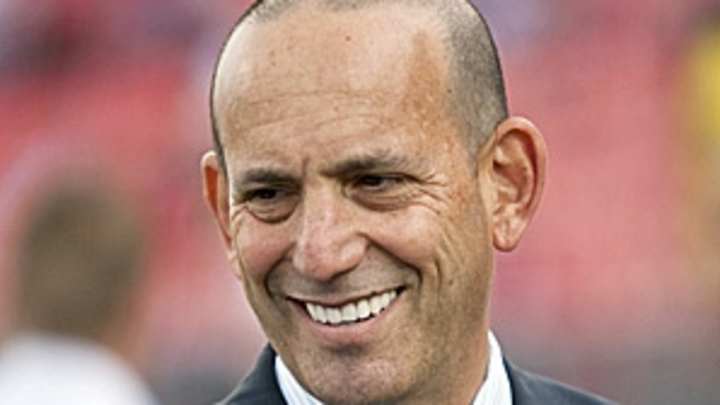Biggest losers in MLS labor dispute

After all, times are hard enough, with everyone feeling the pinch and trying to tighten belts.
Instead, once the covering was pulled back on the collective bargaining agreement, a tangled mess of posturing was revealed. Though there is plenty of blame to go around, it's worth noting that one element emerges: MLS has promised not to lock out players, so if the season does not start, it will be because the players have decided to strike. (The latest extension to the CBA expires Thursday; the season is scheduled to open March 25.)
It may be that the players' union feels there is no other choice, given that MLS administrators have refused to budge on the issue of free agency. While both parties are taking turns with feuding press releases/leaks that portray one side as innocent and wronged, the real losses of the labor dispute have gone unmentioned and unnoticed:
• Young MLS players: With all the talk about free agency, salary-cap raises and guaranteed contracts, the union has proved to be driven by a certain type of player. Namely, these are league veterans whose age and level of talent (or lack thereof) leave them little hope of being pursued by any league other than MLS. There's been no word of any argument for allowing individual clubs to shorten the initial contract length (four-year contracts are standard). It's notable that there's also been no mention of any fight to bring back the MLS reserve league, which was instrumental in helping young players develop.
"I don't know what the outcome is going to be," Galaxy coach Bruce Arena said of that particular topic, though he was optimistic the reserve league would return one day. "We all believe that a reserve league is vital to the development of the players and the growth of this league."
Luis Gil, 16, is one young signing who exemplifies how the labor negotiations are not helping those who put their faith in MLS as a good choice to start a pro career. A player strike could make his choice look terrible, especially if it dragged on for some time. After all, almost nothing stunts a player's growth more than lack of playing time.
• Michel Platini: While it's hard to feel much sympathy for the powerful UEFA chairman, he's in a rough spot. He wants to assure the financial health of the teams in Europe, and has been pushing some MLS-style modifications for some time. However, with the labor dispute making MLS restrictions about as attractive as rotting fish, it's not going to be easy.
• Fans of the expansionPhiladelphia Union: This was to be their year, and now it's in a sort of limbo, which really kills the fervor.
• Don Garber: MLS president Mark Abbott tried to take the bullet by making the cutting public statements on behalf of the league, but it's Garber's image that nevertheless takes a hit. After all, things got to this point under his watch as commissioner. Couldn't a more effective leader have done more to reconcile the two sides? There's still time, of course, for Garber to swoop in with a resolution that both sides accept, which would be akin to the late-inning heroics of the 2005 Pact on the Plane that Landon Donovan and Sunil Gulati agreed to that ended the U.S. Soccer labor dispute.
• European MLS fans: Some of these might more correctly be termed "potential fans," but in either case, with Donovan on loan to Everton, many have cast their eye to what's going on in MLS like ever before. Instead of seeing a league capable of nurturing the type of talent Donovan has, they see politicking ugliness. For Everton fans who would like to keep Donovan, the present situation leaves them rooting against the American league finding a solution, as that would keep Donovan over there. While that feeling is understandable, it's still a bit like taking a soccer ball away from younger siblings, who were just starting to get the hang of the game, and running off to play in the park with older friends.
Ultimately, in these difficult times, it's hard to feel too much sympathy for either millionaire owners or people who have the privilege to play for a living. The bickering makes everyone look bad and leaves fans frustrated, which eventually leads to a tepid response even when the league does resume.
The biggest loser of the current dispute may in fact be the innocence lost, the death of the idea that somehow, in Canada and the United States, soccer-loving people were a sort of distinct clan, where owners were beloved and affectionately termed "Uncle Phil" and players weren't as self-centered as those in other sports. That image is completely dead in the current family feud. Interestingly enough, that might be one of the most concrete steps MLS has taken to show it's going big-time and is just like any other professional sport.
